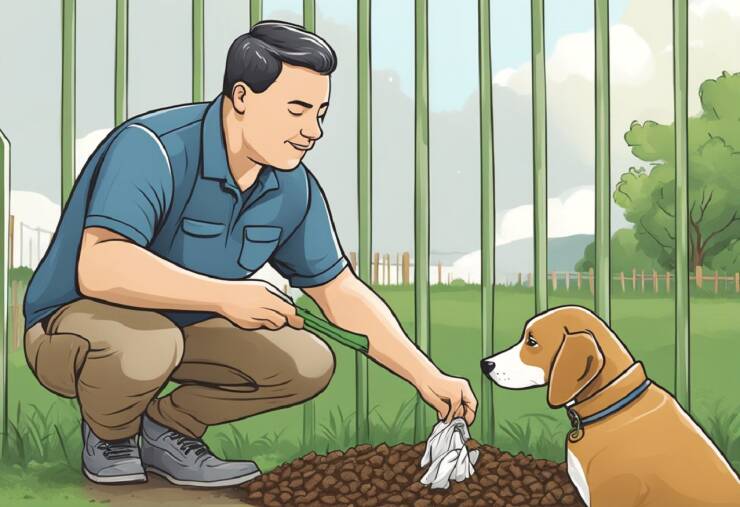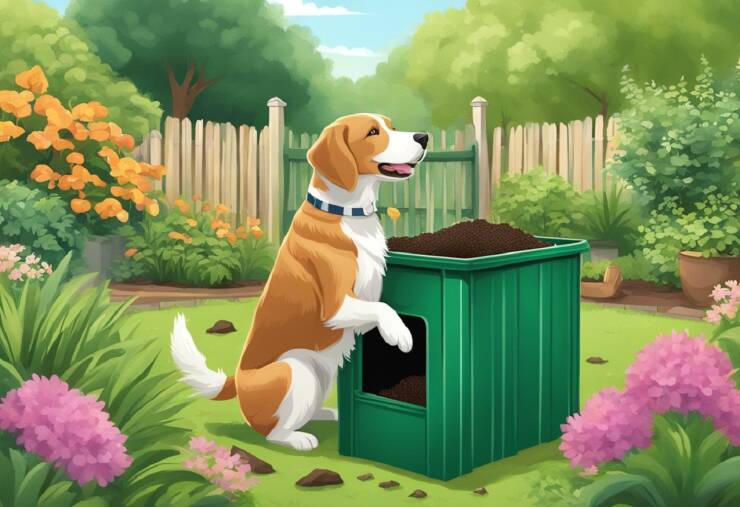The management of dog waste is an issue that dog owners encounter daily, which has significant environmental implications. With millions of domesticated dogs around the world, the accumulation of dog feces, if not properly dealt with in Spokane, can lead to substantial pollution and health risks. As owner awareness rises, eco-friendly disposal methods are increasingly sought to align pet care with environmental stewardship.
Environmentally friendly practices in dog poop disposal and Pooper Scooper Service aim to reduce the ecological footprint while ensuring that local regulations and waste management protocols are adhered to. Alternatives such as biodegradable bags, composting in designated pet waste composters, and dog-poop collection services are examples of responsible choices to consider. Each of these options minimizes the harmful impact on the environment by facilitating proper breakdown or treatment of waste, counteracting the potential for pollutants to leach into soil and water systems.
Owners are urged to educate themselves on the various sustainable dog poop disposal methods, weighing the convenience against ecological benefits. It's crucial to understand the local infrastructure's capacity to handle pet waste, such as whether municipal waste treatment facilities can safely process flushed dog feces. By adopting eco-friendly disposal practices, dog owners can play a direct role in protecting the environment and public health, all while maintaining the well-being and hygiene of their furry companions.
Eco-Friendly Disposal Methods
Choosing the right disposal method for dog waste is crucial for reducing environmental impact. The following methods provide sustainable alternatives that are both practical and eco-friendly.
Biodegradable Poop Bags
Biodegradable poop bags are a sustainable option that minimize plastic waste. They must be made from plant-based materials like cornstarch to ensure they break down correctly. These bags can decompose in commercial composting facilities, thereby decreasing their impact on landfills.
⦁ Material: Plant-based (e.g., cornstarch, potato starch)
⦁ Decomposition: Commercial composting systems
Composting Dog Waste
Creating a compost bin specifically for dog waste offers a way to recycle waste into nutrient-rich compost. Composting dog poo requires maintaining proper temperature and nitrogen balance to ensure safe decomposition.
⦁ Type: Dedicated pet waste compost bins
⦁ Requirements: High temperature, correct nitrogen balance
Flushable Solutions
Flushable dog poop bags are designed to be soluble in water and safe for septic systems, but should only be used if the local water treatment facility can handle pet waste. Flushing dog poop directly into the toilet is a viable option, as long as it doesn't pose a threat to the water supply.
⦁ Products: Water-soluble bags
⦁ Considerations: Compatibility with local sewage treatment facilities
Conclusion: Health and Environmental Considerations
Responsible stewardship of our environment necessitates addressing the proper disposal of dog waste, as it is not only crucial for maintaining human health but also for protecting natural ecosystems. Effective management of pet feces curtails the spread of harmful bacteria and mitigates the environmental impact.
Pathogens and Parasites
Dog waste can carry a host of pathogens such as Toxoplasma, Giardia, and Cryptosporidium, all of which pose significant risks to human health. Parasites found in dog feces can contaminate waterways, leading to outbreaks of illness. Eco-friendly options for disposal aim to minimize the transmission of these pathogens.
⦁ Bacteria: Excessive dog urine and feces can also lead to eutrophication, harming aquatic life.
⦁ Pathogens: Regular and proper disposal of waste is crucial, as pathogens in feces can survive for months.
Impact on Natural Ecosystems
The environmental consequences of improper pet waste management are profound. Landfills and plastic waste contribute to pollution, while methane emissions from decomposing feces exacerbate climate change.
⦁ Marine Life: When waste enters waterways, it can sicken or kill marine life, disrupt habitats, and spoil natural resources.
⦁ Grass and Soil: Accumulating feces can also damage grass and soil, leading to erosion and nutrient imbalance.
In summary, being a responsible dog owner means considering eco-friendly disposal methods that protect both public health and the environment.



